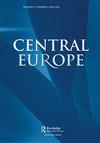Idiosyncratic Ambiguities of Queer(able) Experience in Polish Film in the Early 2010s
IF 0.1
2区 历史学
Q2 HISTORY
引用次数: 1
Abstract
ABSTRACT The search for queer/queerable moments in the post-1989 Polish cinema is a frustrating feat. While increasingly featuring LGBTQ+ characters, especially in the current decade, Polish cinema films rarely break away from heteronormative and, less frequently, homonormative stereotypization, which takes on a limited range of offensive or empathetic manifestations. The former, represented by low-brow comedies, such as Weekend (dir. Cezary Pazura, 2010) and Sex Change (dir. Konrad Aksinowicz, 2009), would continue the infamous tendency of cis-male filmmakers to poke fun at anal sex and dildos, which they apparently identify as representative of non-heteronormative sexual practices and behaviours. The latter, usually featuring one or two gay or lesbian characters in the roles of sidekicks to the protagonists, would constitute sympathetic responses to socio-political situations of LGBTQ individuals in Poland, marked by homophobia, coming-out hardship, and/or heavily non-egalitarian legislation in Poland. Yet, in the early 2010s, a few cinema films brought about cracks in the dominating trend, proposing instead multi-layered though heavily ambiguous studies of non-heteronormative characters living in contemporary Poland. Suicide Room (dir. Jan Komasa, 2011) presents a story of adolescent homophobia in a private secondary-school setting, simultaneously questioning the sexual identification and cis-ness of the protagonist. Floating Skyscrapers (dir. Tomasz Wasilewski, 2013) focuses on a cis-male swimmer who falls in love with an openly gay male while being in a romantic relationship with a woman. Secret (dir. Przemyslaw Wojcieszek, 2012) combines a reflection on non-heteronormative forms of kinship and of sexual identification with the non-memory of Shoah – it is one of several films released around that time, which are reactionary towards the discussion concerning the Polish participation in the pogroms on the Jewish Poles in the 1930s-1940s.2010年代早期波兰电影中酷儿(可)体验的特殊模糊性
在1989年后的波兰电影中寻找酷儿/酷儿时刻是一项令人沮丧的壮举。虽然越来越多的LGBTQ+角色出现在波兰电影中,尤其是在最近十年,但波兰电影很少能摆脱异性恋的刻板印象,而同性的刻板印象却很少出现,这种刻板印象只会表现出有限的冒犯性或移情表现。前者以低俗喜剧为代表,如《周末》(周末导演)。塞扎里·帕祖拉,2010)和变性(导演)。Konrad Aksinowicz, 2009),将延续顺式男性电影人的臭名昭著的倾向,嘲笑肛交和假阳具,他们显然认为这是非异性恋规范的性行为和行为的代表。后者通常以一到两个男同性恋或女同性恋角色作为主角的助手,这将构成对波兰LGBTQ个人社会政治状况的同情回应,波兰的同性恋恐惧症、出柜困难和/或波兰严重不平等的立法。然而,在2010年代初,一些电影给主导趋势带来了裂缝,取而代之的是对生活在当代波兰的非异性恋角色进行多层次但非常模糊的研究。自杀室(主任)Jan Komasa(2011)讲述了一个发生在私立中学背景下的青少年同性恋恐惧症的故事,同时质疑了主人公的性别认同和顺性。漂浮的摩天大楼。Tomasz Wasilewski, 2013)关注的是一个顺式男游泳运动员,他在和一个女人恋爱的同时爱上了一个公开的同性恋男性。秘密(dir。Przemyslaw Wojcieszek, 2012)结合了对非异性恋形式的亲属关系和性别认同与Shoah的非记忆的反思-这是当时发行的几部电影之一,这些电影对有关波兰参与20世纪30年代至40年代对犹太波兰人的大屠杀的讨论持反动态度。
本文章由计算机程序翻译,如有差异,请以英文原文为准。
求助全文
约1分钟内获得全文
求助全文
来源期刊

Central Europe
HISTORY-
CiteScore
0.20
自引率
0.00%
发文量
7
期刊介绍:
Central Europe publishes original research articles on the history, languages, literature, political culture, music, arts and society of those lands once part of the Habsburg Monarchy and Poland-Lithuania from the Middle Ages to the present. It also publishes discussion papers, marginalia, book, archive, exhibition, music and film reviews. Central Europe has been established as a refereed journal to foster the worldwide study of the area and to provide a forum for the academic discussion of Central European life and institutions. From time to time an issue will be devoted to a particular theme, based on a selection of papers presented at an international conference or seminar series.
 求助内容:
求助内容: 应助结果提醒方式:
应助结果提醒方式:


